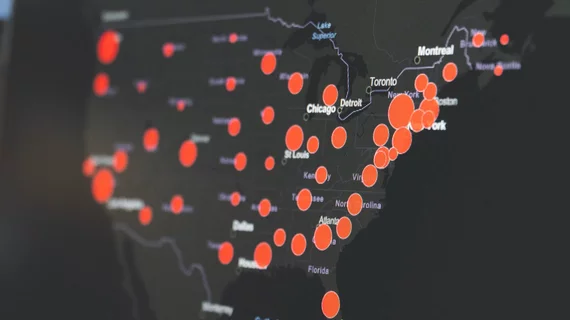Study finds 8.7M cases of COVID-19 cases undetected in March
A new study shows that as much as 80% of COVID-19 cases in the early days of the pandemic went undetected as a result of poor testing capabilities in March.
Limited availability of testing, high false-negative rates and prevalence of asymptomatic or sub-clinical infections means the true number of COVID-19 cases may be under-counted.
Researchers looked at influenza-like illnesses (ILI) to estimate the prevalence of COVID-19. A surge of influenza-like illnesses in outpatient surveillance data above seasonal averages corresponds to more than 8.7 million new COVID-19 infections across the U.S. over a three-week period in March. The researchers, who published their findings in Science Translational Medicine, subtracted influenza illnesses from the data as well as the seasonal signal of non-influenza ILI.
The surge of these ILI cases came during the week starting March 15, according to the study, and decreased in many states in the following weeks. However, New York and New Jersey, two states hit hard by the pandemic, did not see a decline in ILI cases until the week ending March 28.
The results of the study come at a time when cases in the U.S. continue to surge, hitting nearly 2.4 million cases as of June 25, and as the Trump administration has decided to cut funding for 13 drive-through testing sites in five states. President Trump also recently commented that he asked his team to slow down COVID-19 testing because the testing was revealing so many more cases across the nation.
Researchers noted their study cannot account for all COVID-19 cases in the U.S.
“Not all patients infected with SARS-CoV-2 will present to a healthcare provider with ILI,” wrote first author Justin D. Silverman, of Penn State University, et al.
They also could not measure the rate of sub-clinical cases.
Despite the limitations of the study, the researchers stated the findings, along with other research, “strongly suggests that SARS-CoV-2 has potentially infected millions in the U.S.”

